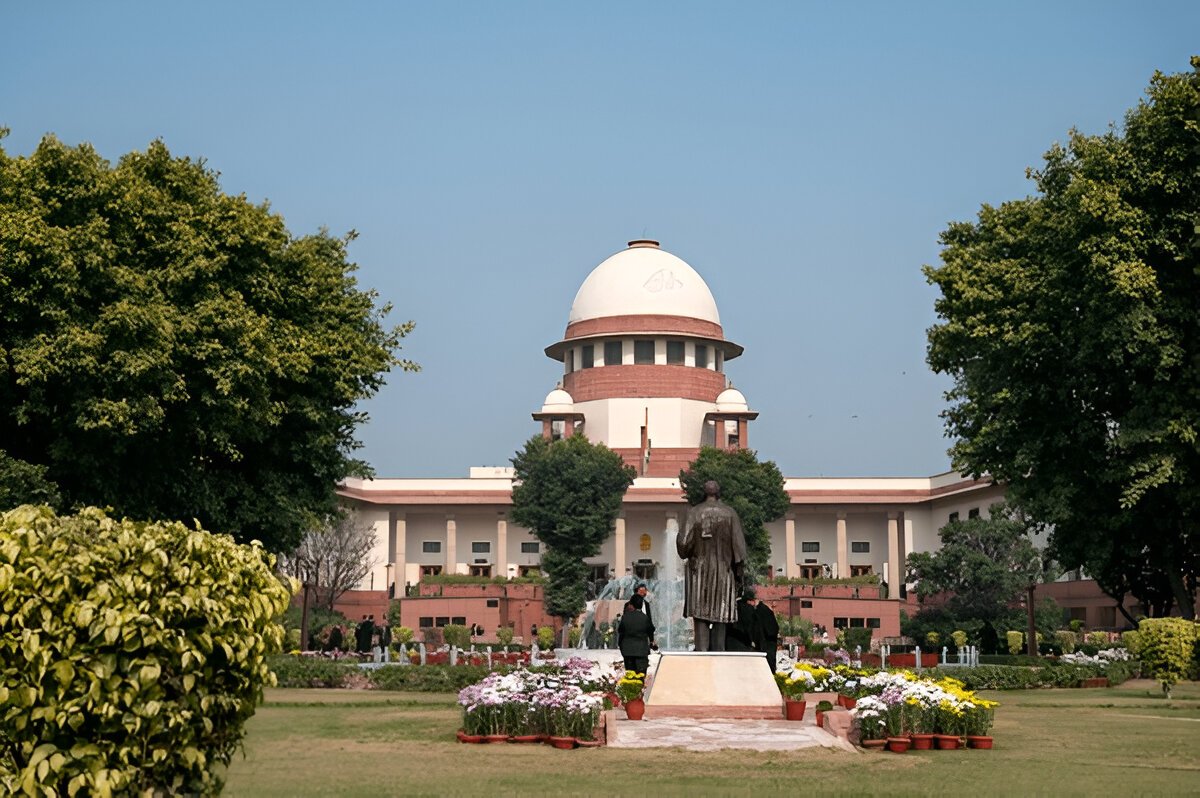The Bench Comprising Justice Vikram Nath and Justice Sandeep Mehta
Introduction
In a landmark judgment, the Supreme Court of India recently ruled that a wife, who received a flat as part of a settlement in a matrimonial dispute, is exempt from paying stamp duty under the Registration Act, 1908. This decision underscores the importance of legal provisions that facilitate equitable settlements in divorce proceedings.
- Registration Act, 1908 – Section 17(2)(vi): Exempts certain documents from compulsory registration, including those forming part of court proceedings.
- Article 142 of the Constitution of India: Grants the Supreme Court the power to pass necessary orders for complete justice.
Facts
The case involved a dispute between a husband and wife regarding the ownership of a flat in Bombay. During the pendency of a transfer petition filed by the husband, the parties agreed to dissolve their marriage through mediation. A key contention was the flat, which both claimed to have contributed towards purchasing. As part of the settlement, the husband relinquished his rights over the flat in favor of the wife, who, in turn, waived her claim for alimony.
Issues
- Whether the transfer of the flat to the wife, pursuant to a compromise in a divorce settlement, could be exempted from stamp duty under the Registration Act, 1908.
Contention of the Petitioner
The petitioner-husband argued that he was willing to transfer the flat to his wife as part of the mutual settlement. He contended that the settlement agreement should be legally recognized, and the wife should bear the necessary stamp duty for the transfer.
Contention of the Respondent
The respondent-wife claimed that since the flat formed part of the matrimonial dispute settlement, its transfer should be exempt from stamp duty. She relied on Section 17(2)(vi) of the Registration Act, 1908, which provides for exemptions in cases where a property is transferred as part of a court settlement.
Court's Analysis
The Supreme Court referred to the precedent set in Mukesh v. The State of Madhya Pradesh & Anr. (2024), where it was held that properties forming part of judicial settlements fall within the exemption under Section 17(2)(vi) of the Registration Act. The Court observed that since the flat was included in the matrimonial settlement and was the subject matter of proceedings before the Court, the exemption under Section 17(2)(vi) was applicable.
The Court further ruled that compelling the wife to pay stamp duty on a settlement-based transfer would be inequitable and contrary to the legislative intent behind the exemption provision.
Conclusion
The Supreme Court directed the concerned Sub-Registrar to register the flat in the exclusive name of the wife without requiring stamp duty payment. Additionally, under Article 142 of the Constitution, the marriage of the parties was formally dissolved by mutual consent.
This ruling stated the principle that court-mediated settlements should not be unduly burdened with additional financial obligations, thereby encouraging fair and amicable resolutions in matrimonial disputes.

